March 2
John Irving
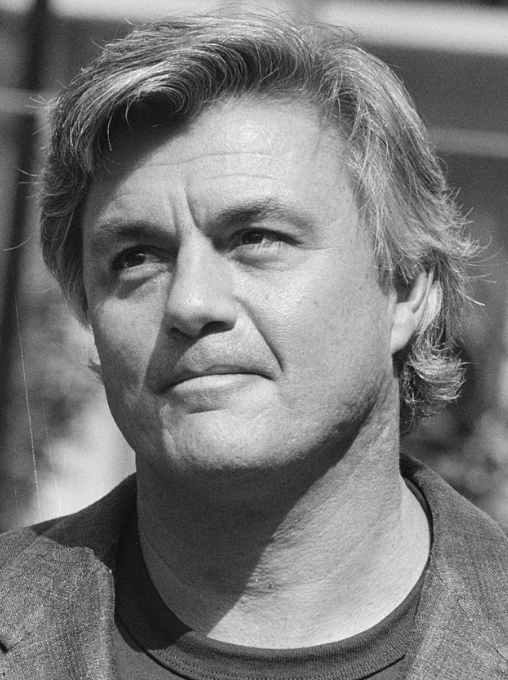
On this date in 1942, novelist John Irving was born in Exeter, New Hampshire, as John Wallace Blunt Jr. He became John Winslow Irving after his mother remarried when he was 6. His religious upbringing was in a liberal Episcopal congregation. He earned his B.A. from the University of New Hampshire in 1965 and his M.F.A. from the University of Iowa in 1967.
His early books included Setting Free the Bears (1968), The 158-Pound Marriage (1972), the enormous best-seller The World According to Garp (1978), The Cider House Rules (1986), A Prayer for Owen Meany (his top-seller ever, 1989) and A Widow for One Year (1999). Irving won the 2000 Oscar for Best Adapted Screenplay for The Cider House Rules. A Widow for One Year was excerpted for the 2004 movie “The Door in the Floor.” Robin Williams starred in the 1982 movie “The World According to Garp.”
The Cider House Rules portrayed a sympathetic abortionist during the era when it was illegal. Irving told Mother Jones magazine (May/June 1997): “I have no respect for the right-to-life position, though I have every respect for an individual who says, ‘I could never have that procedure, I could never see a film or read a book about that procedure.’ It doesn’t bother me if people feel that way. But when you legislate personal belief, you’re in violation of freedom of religion.”
Irving has said he holds agnostic views and resents strident atheism as much as he does religious proselytizing. “Contrary to what many fundamentalist religions would tell us, I don’t think the humanist position should be confined to atheists. I think humanism means a belief in the possibility of the goodness of the human being.” (Brave Souls: Writers and Artists Wrestle with God, Love, Death and the Things That Matter by Douglas Todd, 1996)
He has also published the novels Last Night in Twisted River (2009), In One Person (2012), Avenue of Mysteries (2015) and Darkness As a Bride (2020). Irving married Shyla Leary in 1964 and they had two sons before divorcing. He later married Janet Turnbull, his publisher at Bantam-Seal Books, and they had a son in 1992. He was diagnosed with prostate cancer in 2007 and had a radical prostatectomy.
FFRF announced in 2022 that Irving was the recipient of its Emperor Has No Clothes Award for “plain speaking” on religion’s shortcomings.
PHOTO (public domain): Irving in 1989 in the Netherlands.
“I must remind the Roman Catholic Church of the First Amendment to the United States Constitution: ‘Congress shall make no law respecting an establishment of religion, or prohibiting the free exercise thereof.’ In other words, we are free to practice the religion of our choice, and we are protected from having someone else’s religion practiced on us. Freedom of religion in the United States also means freedom from religion.”
— Irving op-ed, New York Times (June 23, 2019)
Gerald H.F. Gardner
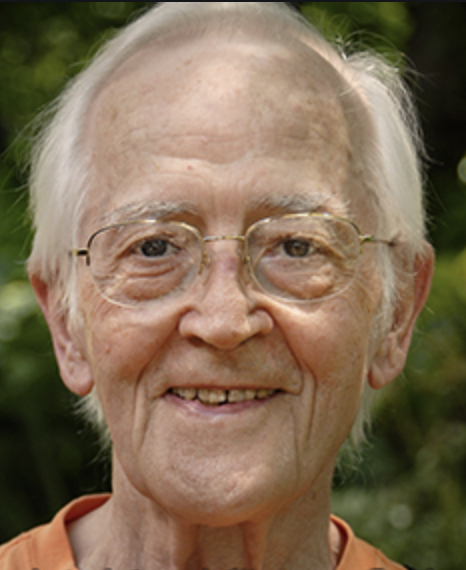
On this date in 1926, mathematician Gerald Henry Frazier Gardner was born in Tullamore, Ireland. He studied mathematics and theoretical physics at Dublin’s Trinity College. He earned a master’s in applied mathematics from Carnegie Institute of Technology (1949) and a doctorate in mathematical physics from Princeton (1953). Gardner worked in applied seismology for several decades and taught at Carnegie Institute of Technology (now Carnegie Mellon University), Rice University and the University of Houston.
Gardner actively pursued equal rights for women. Along with his wife, the former Jo Ann Evans, he was an early member of the Pittsburgh chapter of the National Organization for Women. Evans, a Ph.D. experimental psychologist, adopted the surname Evansgardner when they married in 1950.
Gardner and the chapter in 1969 challenged sex-based employment ads in the Pittsburgh Press. Employment want ads used to list separate categories for “Male Wanted” and “Female Wanted,” which barred women from much professional work. Gardner specifically provided statistical analysis of the likelihood of women finding employment in such a structure. This led to a landmark women’s rights decision in 1973 by the U.S. Supreme Court, which upheld a Pittsburgh ordinance that prohibited sex-based employment advertisements.
As a result, want ads were “desexregated” around the nation, a huge boon for women’s employment rights. Gardner contributed statistical analysis in other cases involving gender and race discrimination and considered this work the most important of his life (Pittsburgh Post-Gazette, July 27, 2009.) He and his wife were Life Members who joined FFRF in the late 1970s and left a generous bequest. Gardner died of leukemia at age 83 in 2009. Jo Ann died in 2010.
He “was an activist atheist, a proselytizing atheist. He thought that not saying you were an atheist hurt the cause of reality.”
— Jo Ann Evansgardner, remembering her husband in his New York Times obituary (July 28, 2009)
Matt Taibbi
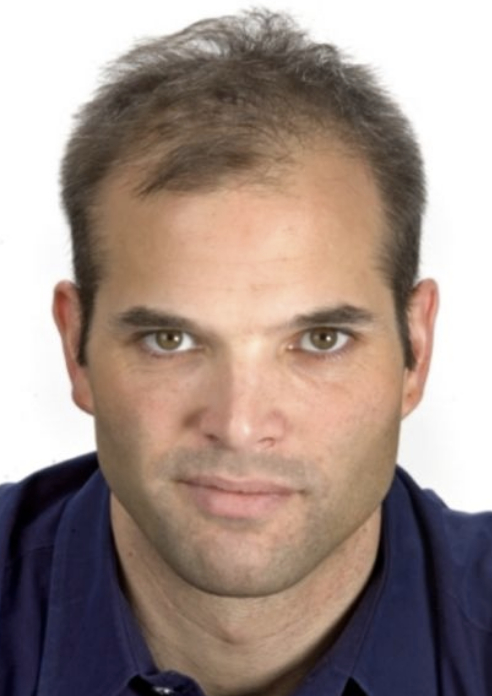
On this date in 1970, muckracking atheist journalist Matthew C. “Matt” Taibbi was born in New Brunswick, N.J. The son of an NBC reporter, he grew up in Boston and graduated from Bard College in Annandale-on-Hudson, N.Y. He moved to Russia in 1992 and studied and worked there and in Uzbekistan and Mongolia for over six years. In 1997 he co-edited with Mark Ames an English language newspaper called the eXile, geared to expatriates in Moscow. It provided background for his first book, with Ames and Edward Limonov, The Exile: Sex, Drugs, and Libel in the New Russia (2000).
He then started The Beast, a satirical biweekly in Buffalo, N.Y., but left to concentrate on freelancing for The Nation, Playboy, Rolling Stone and New York Press (which he left in 2005 after his editor Jeff Koyen was fired over issues raised by Taibbi’s column “The 52 Funniest Things About the Upcoming Death of the Pope”). Taibbi defended the piece as “off-the-cuff burlesque of truly tasteless jokes” to relieve readers of his “fulminating political essays.” He covered the 2008 presidential campaign for “Real Time with Bill Maher.”
He received a 2008 National Magazine Award in the category “Columns and Commentary” for his Rolling Stone columns. His article “The Great American Bubble Machine,” which detailed Goldman Sachs’ involvement in the financial meltdown, received a 2009 Sidney Award from the Sidney Hillman Foundation. His 2008 book The Great Derangement: A Terrifying True Story of War, Politics, and Religion told the story of how he infiltrated Texas evangelical pastor John Hagee’s Cornerstone megachurch and school and Hagee’s “near-absolute conquest of a very trendy niche in the market: Christian Zionism.”
He has also written Griftopia: Bubble Machines, Vampire Squids, and the Long Con That Is Breaking America (2010), The Divide: American Injustice in the Age of the Wealth Gap (2014), Insane Clown President: Dispatches from the 2016 Circus (2017) and Hate Inc.: Why Today’s Media Makes Us Despise One Another (2019). He and his wife Jeanne, a family physician, were married in 2010 and live in New Jersey with their son.
MEHTA: What role should religion play in the political arena?
TAIBBI: Well, I’m an atheist/agnostic, so I would say none. People should stick to solving the problems they have the tools to solve. If you have a budget crisis, well, human beings can do the math, work out a new tax/spending strategy, and fix that. But we don’t have any tools for [divining] the will of God as it relates to, say, a new problem like high school shootings, the Iraq war, or the AIDS virus. All we have are the opinions of religious leaders whose motives may or may not be pure, and whose grasp of logic may or may not be of the highest quality. If you inject religion into the equation, the debate is necessarily going to be subjective, emotional, and inconclusive. It’s also very easy for unscrupulous people to use religion to further various ends for other reasons. Hagee’s humping of Israel is a great example. How do you get fundamentalist Christians to support the financial subsidy of military aid to a Jewish state? Easy; you convince them the world is going to end soon, and that we’re going to be on the wrong side of Armageddon unless we support Israel.”— Interview with "Friendly Atheist" Hemant Mehta (April 29, 2008)
Daniel Craig
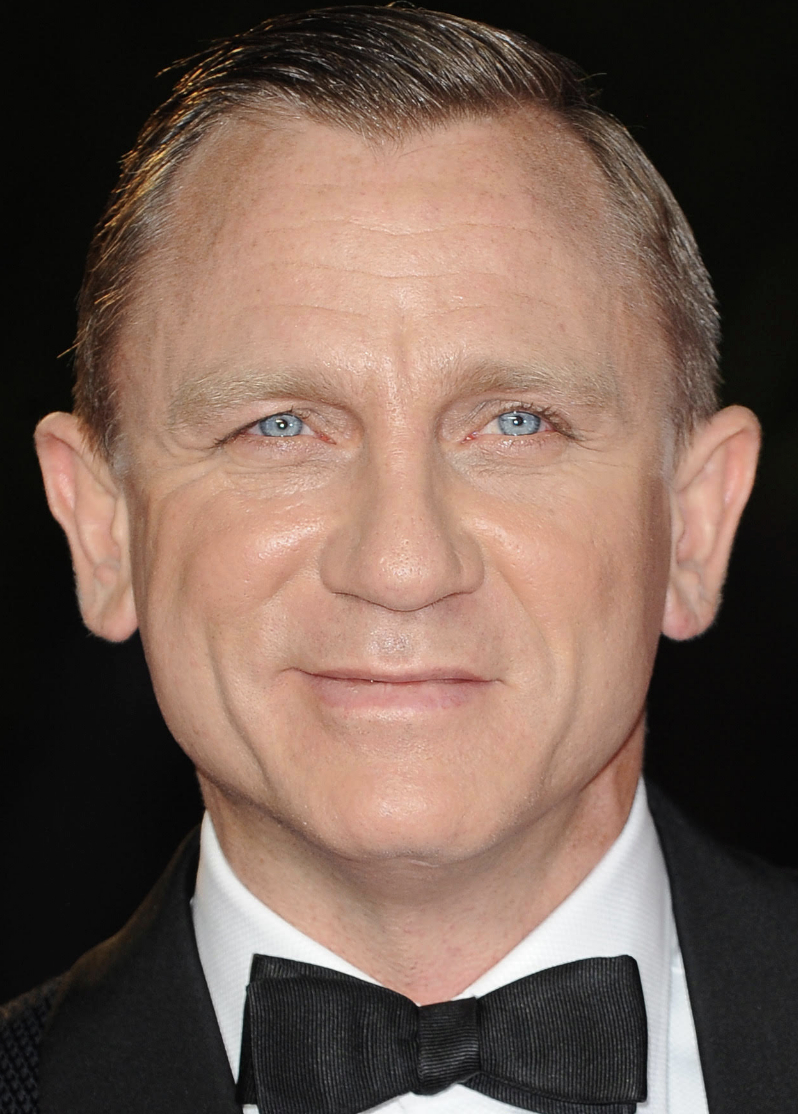
On this date in 1968, actor Daniel Wroughton Craig was born in Chester, England to Carol (née Williams) and Timothy Craig, respectively an art teacher and midshipman in the merchant marine. He began acting in school plays at age 6. At 16 he was accepted into the National Youth Theatre and then by the Guildhall School of Music and Drama, graduating in 1991.
Craig made his film debut in the drama “The Power of One” (1992) and appeared the next year in the Royal National Theatre’s production of “Angels in America” by playwright Tony Kushner. Throughout the 1990s, he played a variety of roles in screen and television productions. He co-starred with Angelina Jolie in the 2001 action film “Lara Croft: Tomb Raider” and achieved international fame in 2006 when he played James Bond, taking over from Pierce Brosnan, in “Casino Royale.”
It earned him a nomination for the BAFTA Award for Best Actor in a Leading Role. He followed with the sequels “Quantum of Solace” (2008), “Skyfall” (2012), “Spectre” (2015) and “No Time to Die,” which was scheduled for release in April 2020 but was postponed due to the COVID-19 pandemic. It was released in 2021. Craig’s role in the 2019 mystery film “Knives Out” earned him a Golden Globe nomination for Best Actor.
He married actress Fiona Loudon in 1992. They had a daughter, Ella, before divorcing in 1994. After long-term relationships with actress Heike Makatsch and film producer Satsuki Mitchell, he married actress Rachel Weisz in 2011. They announced the birth of a daughter in 2018.
Craig is notoriously private about his personal life and beliefs, although he has said he’s an atheist (see quote below). In 2019 in a Kaufmann Store interview, he said, “I don’t go to church. I’m not religious. But I think religion is fascinating because it affects our lives massively.”
When he hosted “SNL” on March 7, 2020, a sketch he appeared in with Kate McKinnon and Cecily Strong brought laughs from the audience. McKinnon: “Blace, I thought you left to become a priest.” Craig answered: “Yes, but I couldn’t do it — the no-sex part. Also, have you read the bible? It’s weird.”
PHOTO: Craig at the 2012 premiere of “Skyfall” at the Royal Albert Hall, Kensington, UK; photo via Shutterstock by Landmarkmedia.
DIE ZEIT: Are you a believer?
CRAIG: I’m an atheist.— Craig, quoted in the German weekly Die Zeit, "Real Heroes Are Shy" (Jan. 12, 2012)
Pamela Paul
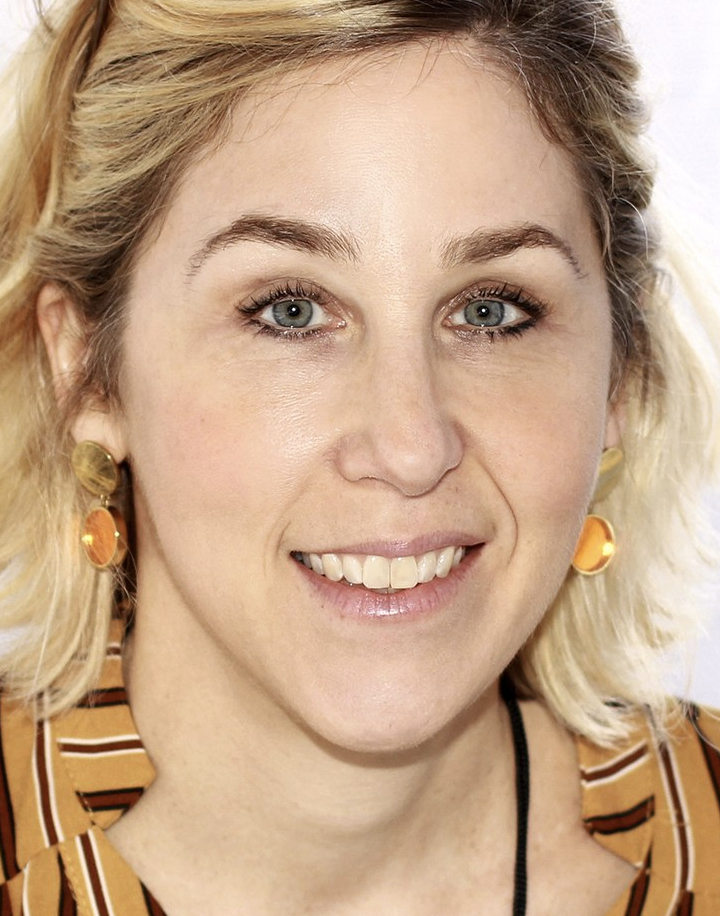
On this date in 1971, journalist and author Pamela Lindsey Paul was born in New York to Carole and Jerome Paul. Her father was a construction contractor and her mother was an advertising copywriter and, later, editor of Retail Ad World. She has 7 brothers. Her parents divorced when she was 3 or 4.
“Like many other morbid kids with Jewish ancestry, I was drawn to Holocaust reading from the moment I entered adolescence, seeking out the death and torture and deprivation and evil,” Paul said in her 2017 memoir “My Life With Bob.” Bob (short for Book of Books) was her journal detailing all the books she had read since high school and her intense relationship with reading. She lived with her mother on Long Island except for weekends with her father on New York’s Upper West Side.
She enrolled at Brown University in Providence, R.I. As a challenge to herself, she joined the rugby team. “And I joined a gospel choir even though I’m an atheist and I can’t sing. I guess I do have a streak of wanting to put myself in situations that are uncomfortable and challenging and like, can you take it?” (Women’s Wear Daily, April 20, 2021)
After graduation, Paul taught American history at a startup international school in Thailand before taking marketing jobs at Scholastic Inc. and Time Inc. in New York. She then joined fiancé Bret Stephens in London, where she first wrote professionally with a monthly column on global arts in The Economist.
Her reporting and columns have appeared in numerous notable publications. Her first book, “The Starter Marriage and the Future of Matrimony” (2002), came in the wake of her divorce from conservative journalist Bret Stephens, whom she wed in 1998. A starter marriage was defined as starting before age 30, being childless and ending within five years.
She joined The New York Times in 2011 as a columnist, children’s books editor and features editor. She edited the paper’s Book Review for nine years before becoming an opinion columnist, a position she maintained until leaving the paper in April 2025. She has written eight books, the most recent being “Rectangle Time” and “100 Things We’ve Lost to the Internet,” both published in 2021.
Paul came under fire in 2023 for defending author J.K. Rowling from allegations of transphobia, “because she has asserted the right to spaces for biological women only, such as domestic abuse shelters and sex-segregated prisons” and for insisting “that when it comes to determining a person’s legal gender status, self-declared gender identity is insufficient.” (The Advocate, Feb. 16, 2023) Rowling also received substantial support from groups traditionally seen as backing women’s and LGBTQ+ rights.
Amy Schneider, the first trans contestant on “Jeopardy!” and the highest-winning woman in the show’s history, was a critic: “If certain famous billionaire authors were to advocate for ‘Whites only’ spaces, we’d all see it as the hate speech that it is. But when they advocate for ‘cis only’ spaces, the most powerful newspaper in the country rushes to their defense.” (Schneider tweet, Feb. 16, 2023)
In a column headlined “I Pledge Allegiance to … My Conscience” (March 16, 2023), Paul praised Marissa Barnwell, 15, a Black honor student grabbed by a South Carolina teacher and shoved against a hall wall for not acknowledging that the Pledge of Allegiance was being recited over a loudspeaker. She’d stopped saying the pledge in third grade. “Don’t you love this country?” the teacher asked.
Something similar happened to Paul in the second grade when she opted out of the pledge, despite being “painfully shy,” and was sent to the principal’s office. “I remember my mother being called and that whatever she said must have appeased them.” The Barnwells are suing the school district for violating the First and Fourteenth amendments.
PHOTO: Paul at the 2019 Texas Book Festival in Austin; photo by Larry D. Moore, CC BY-SA 4.0.
“Unhappy with what much of the country believes, the court’s right wing chooses to believe what it would like and foists the results on the rest of us. Just like Coach Kennedy, they’re out to proselytize.”
— Paul slamming the SCOTUS 6-3 decision in Kennedy v. Bremerton School District that held a public high school football coach's onfield prayer was constitutional. (New York Times, July 17, 2022)
